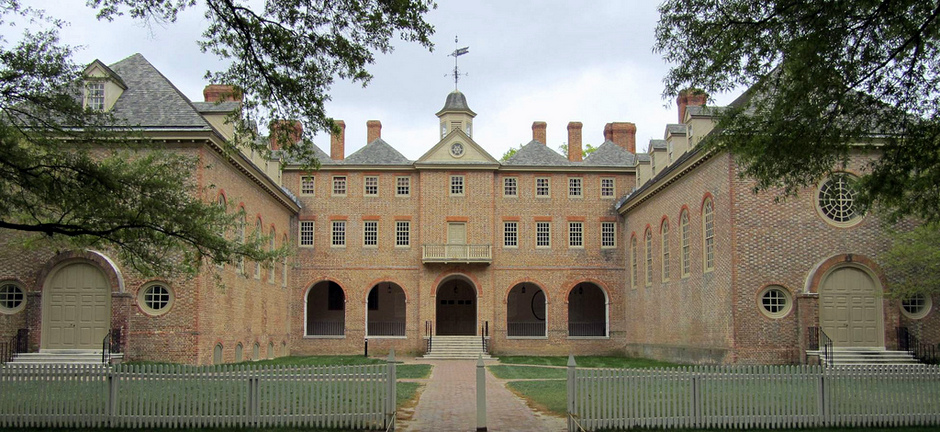I was a student at William and Mary from 1957, when I entered as a freshman, until 1964, when I graduated from law school. I wrote for The Flat Hat all four years as an undergraduate, and did a weekly column for three years. I also served as associate editor. After law school, I went to Washington, taught at a prep school for a year and then worked on Capitol Hill. I wrote a column for Roll Call, the newspaper of Capitol Hill, and have been doing a syndicated column ever since.
At no time did anyone ever attempt to censor anything in The Flat Hat, if my memory is correct. These were times of great tension in Virginia, with segregation in force. It would be a number of years before black students would be admitted to the College. In Williamsburg in those days, every aspect of life was segregated. I got into trouble with the College administration when, as Vice President of the Political Science Club, I invited the first black speaker to the college. He was Alonzo Moron, then president of Hampton Institute, now Hampton University, later to serve as Governor of the Virgin Islands and head of the Red Cross.
We always took our speakers out to dinner before our meetings. The question was, where in segregated Williamsburg we could go. I thought our best chance for success was the Williamsburg Inn. Since Dr. Moron was light-skinned, we were seated and served with no difficulty. After a pleasant dinner, our meeting proceeded with no problems.
A few days later, I was called to the office of the College President, Alvin Duke Chandler. He said that since I had a reputation as a conservative, which was reflected in my column, that he was surprised that I had invited a black speaker to the College. I responded that, “I am a conservative, but racism is not one of the things I want to conserve.”
After this meeting, the Political Science Club was forbidden to meet on campus. Looking for an alternative meeting place, I spoke with the ministers of the churches in walking distance of the College. I was turned down by all except one. Some expressed sympathy, but feared their congregations would be outraged. The one exception was the Methodist minister, Rudolph Benesh. He was a recent immigrant from Hungary, coming to Virginia after the Hungarian Revolution of 1956. He hated tyranny of all kind. I had promised President Chandler that to show our fairness, our next speaker would be a supporter of segregation. We invited James Jackson Kilpatrick, editor of the Richmond News Leader. His talk supporting segregation had a packed house and, as I remember, most of the questions showed growing dismay with Virginia’s racial division.
After living through this period, it pains me when I now hear some critics proclaim that ours is a “racist” society. We may still have problems, as any nation of more than 300 million people of every race, religion and ethnic group, will, but the real story is how far we have come. The definition of American exceptionalism, I think, involves the reality that it is our very diversity which defines us. As Herman Melville once said, “If you shed a drop of American blood, you shed the blood of the whole world.”
William and Mary influenced my life in many ways and I have been in close touch with the College through the years. I am happy that two of my children attended the College. Some of my closest friends were made there, including two former Flat Hat editors, Alfred Volkmann ’61 and Jerry Van Voorhis ’63, both of whom I see regularly. Hopefully, the limits on free and open debate and discussion which are occurring at other colleges and universities, as I discuss in my column, are not occurring at William and Mary.
Several years ago, visiting in Williamsburg, I was having lunch at the Blue Talon Restaurant. I told the waiter, who had never heard this story before, that the building housed the Virginia Gazette (for which I had worked as a reporter) when I was a student, and The Flat Hat had been printed there.
Williamsburg, fortunately, remains recognizable to those of us who lived there many years ago.
One more story. When I was a student, you had to swim back and forth across what appeared to me to be a very large pool to graduate. A weak swimmer, I enrolled in a swimming class. I remember the whole class gathered around the pool cheering me when I finally managed to accomplish this task. Many years later, I heard a sermon by a Presbyterian minister, then a professor at the seminary in Princeton. The subject was something like “Life’s Great Challenges.” He cited the swimming requirement at William and Mary. We had a nice talk after the service. By the time my son and daughter attended the College, that requirement had been eliminated.
Allen Brownfeld B.A. ‘61 J.D. ‘64 recently wrote a column for Communities Digital News, “The ‘Heckler’s Veto’ on America’s university and college campuses.” Email Allan Brownfield at abrownfeld@gmail.com.

